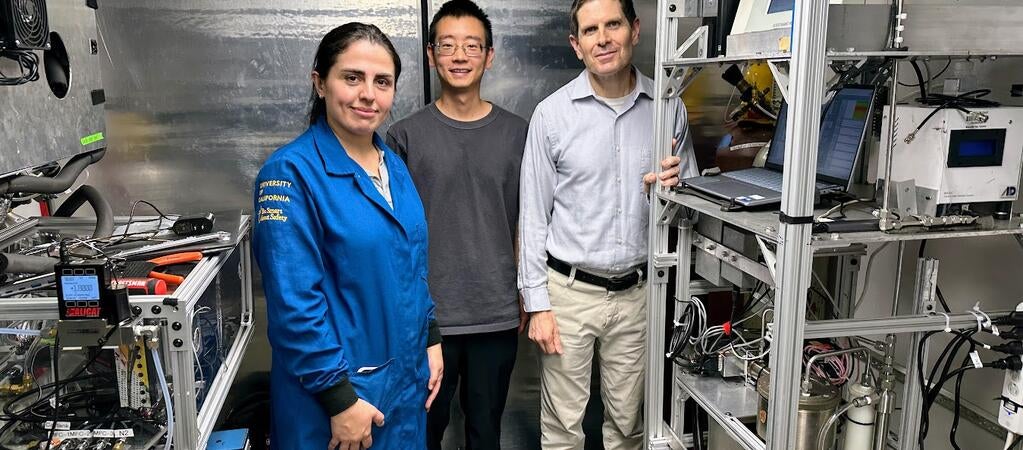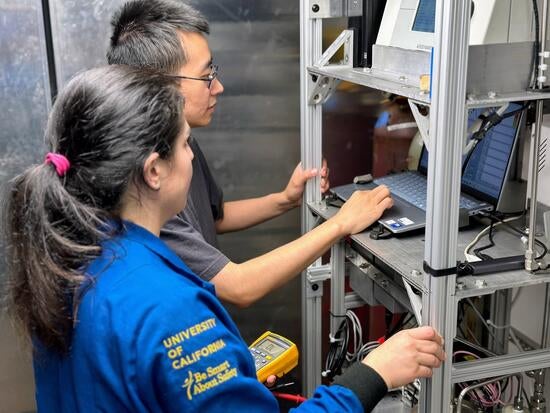
CE-CERT Collaborates with University of Houston and Baylor University on Major Air Monitoring Initiative
September 16, 2025
This fall, a multi-university research collaboration is advancing California's effort to better understand air pollution at the neighborhood level, how it fluctuates over time, varies by location, and affects the health of overburdened communities across the state.
Researchers from the Center for Environmental Technology (CE-CERT) are working alongside partners from the University of Houston and Baylor University as part of the Statewide Mobile Monitoring Initiative (SMMI), a California Air Resources Board (CARB) program funded by California Climate Investments. The initiative aims to develop a more complete picture of pollutant concentrations by deploying mobile labs across the state and combining them with community engagement and publicly accessible data tools.
At the heart of CE-CERT's contribution is the heavily instrumented mobile emissions research vehicle developed by the project partners from Houston and Baylor. Over the next two months, the truck will travel throughout Southern California, including into the Bakersfield area, as a part of a coordinated measurement campaign. The CE-CERT team will operate several scientific-grade instruments on board to measure particle size distributions and concentrations, contributing to a larger dataset of criteria pollutants, air toxics, and greenhouse gases collected during the project.

Dr. Don Collins, CE-CERT Director, along with graduate students Minghao Han and Maryam Yousefi, are leading the Riverside-based deployment and operating CE-CERT's instrumentation. Their efforts support a broader set of measurements collected by the Houston and Baylor teams, who are responsible for additional air quality sensors on board the shared vehicle.
"There are air quality questions that can only be answered by getting out of the lab and into the field, by being where people live, commute, and work," said Collins. "This initiative is about bringing high-resolution, scientific-grade measurements to the places that need them most."
The SMMI campaign combines two types of mobile platforms: a fleet of standardized vehicles operated by Aclima, Inc., and three advanced mobile labs from UC Riverside (CE-CERT), UC Berkeley, and Aerodyne Research. While the Aclima cars will revisit the same routes repeatedly to build averages over time, the instrumented research trucks collect more detailed chemical and physical data at high-priority locations.
The data gathered through SMMI will be integrated into a public data portal, enabling CARB and community stakeholders to better understand neighborhood-scale air quality. Importantly, the initiative extends monitoring efforts into regions beyond those already covered by California's AB 617 Community Air Protection Program, helping identify pollution hotspots and prioritize future interventions.
"We're not just studying the air for the sake of science," said Collins. "We're doing this to support communities, to inform better policy, and to help CARB and other agencies identify where action is most urgently needed."
SMMI is funded through a $27 million legislative appropriation and is part of a broader push to reduce emissions, improve environmental equity, and expand data access in California. The project includes community engagement activities and has undergone multiple rounds of public review to ensure its design reflects the needs of affected residents.
As the CE-CERT team begins its first scheduled drives this week, their work will contribute to a larger effort to make invisible pollutants visible and to translate environmental research into informed action across the state.
To learn more about the Statewide Mobile Monitoring Initiative, visit CARB's SMMI webpage.